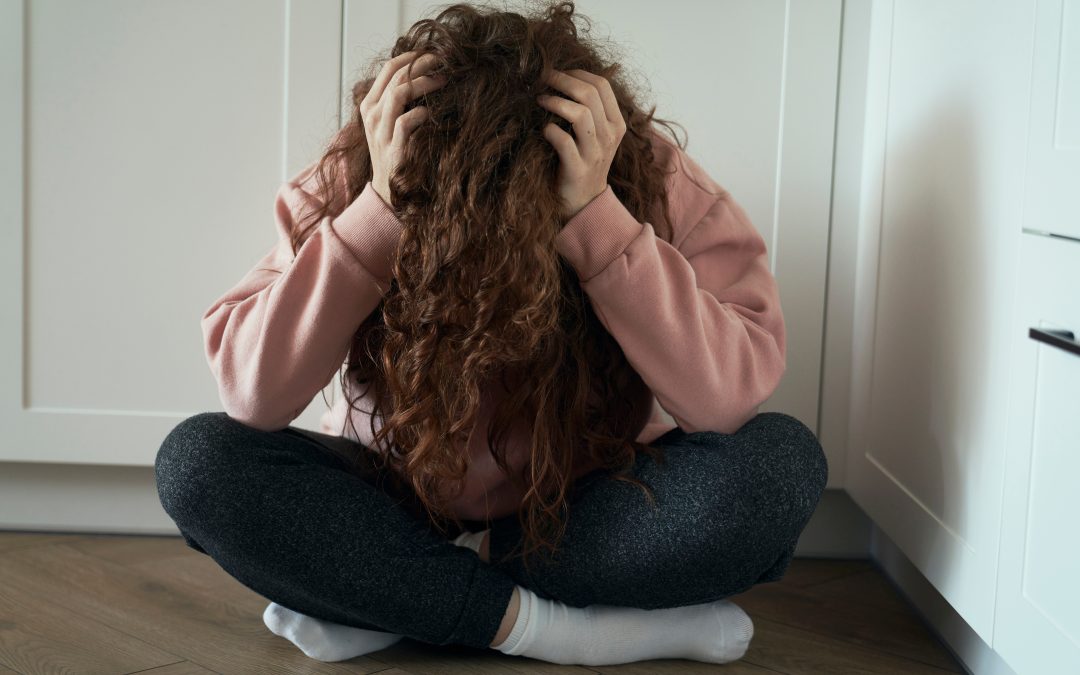WHY DO WE EXPERIENCE ANXIETY AND DEPRESSION?
Most of us will experience heightened anxiety or depression at some point in our lives. Sometimes we know why we feel this way, what has contributed to it and it passes. Other times anxiety and depression can be more intense, recurring and we don’t have full clarity on why this is the case, and what we need to do about it. Maybe this is where you find yourself now?
Let us have a look at some of the possible roots of anxiety and depression.
Maybe something will resonate with you and shed some light on how you feel.
- Learned behaviour
One or both parents (or other caregivers or significant people in your life) may have experienced challenges with their mental health and regularly displayed anxious and/ or depressed behaviour or ways of thinking. As this was their way of being and what you were familiar with you may have absorbed some of their way of thinking about yourself, other people, life and the world around you. The good news is that old patterns of thinking and behaviour can be unlearned and new ones put in place.
- Difficult childhood experiences
Sometimes we encounter situations that are really hard for us to process when we are young – things that shake our sense of safety and security to a small or large degree or things that embarrass or humiliate us. These could be experienced in our home, at school or elsewhere. Some examples would be: accidents, illnesses, bereavements, bullying, witnessing violence, family breakdown, neglect or abuse (physical, emotional, sexual), loss of or separation from something or someone familiar or important to us. These can be painful things that torment us or that we have buried deep down. Engaging with counselling can support you in processing these things and finding ways to heal and move forward.
- Unmet emotional needs and poor quality relationships
“Your distress is not a malfunction – it’s a signal that your needs aren’t being met – muffle it or heed it – it’s a normal healthy reaction to intolerable circumstances” – Johann Hari – Lost Connections. https://www.amazon.co.uk/Lost-Connections-Youre-Depressed-Find/dp/1408878720/ref=tmm_pap_swatch_0?_encoding=UTF8&qid=1662026063&sr=8-1
If all of our emotional needs are being met and the relationships in our lives are functioning well we tend to be fairly calm and relatively content. At various times in our lives we may find that some of these needs are not being met and this can contribute to a sense of frustration, anxiety and depression.
Have a look at the list below and consider whether any of the needs listed are not currently met for you:
- Feeling a sense of safety/security in home/personal life and work life
- Having a sense of autonomy/independence (as opposed to others inappropriately interfering/manipulating/controlling your life/decisions)
- Being in a position to give and to receive attention
- Positive and healthy emotional connections with others (and with self)
- Fulfilling (vs. draining or overbearing) friendships
- Affection and intimacy
- Sense of connection to community (vs. isolation)
- Feeling recognised/ validated/ a healthy sense of status at home/ in work/ in the community
- Having non-invaded moments of privacy/ solitude to enable reflection on and consolidation of life experiences
- Feeling a sense of competence/ achievement in life
- Having something inside or outside of work life which provides a sense of meaning/ purpose
Counselling can help you pinpoint your unmet needs and explore ways to get them met.
- Existential crisis
Sometimes we have this persistent, nagging sense of not being who we want to be and where we want to be in life. We can feel deeply dissatisfied and restless and not know how to shake off these feelings and make things change. If we fail to address how we feel then anxiety and depression can take root. If you feel stuck and unsure of how to find change some sessions of counselling support may be beneficial.
- Sense of disconnection
In the first half of Johann Hari’s book ‘Lost Connections’, he considers the things that we may feel disconnected from and how this disconnection makes us feel anxious and depressed. You may feel disconnected from:
- Meaningful work
- Other people
- Meaningful values
- Childhood trauma
- Status and respect
- The natural world
- A secure future
- Your true self
The second half of the book focuses on solutions. This is a book worth checking out if you are feeling depressed or anxious!
- Old roles/ scripts/ coping mechanisms no longer serving you well
As we grow and move through life we adopt ways of being and coping which may have been influenced by others’ expectations of us. We can unconsciously do this to maintain our sense of belonging and safety and we can continue for many years with patterns of negative thoughts and behaviour. This can feel familiar to us regardless of whether they are still functioning effectively to produce contentment,or have instead become a hindrance to personal progress. We may reach a point where it’s time to challenge our patterns of thinking/behaving, shedding old scripts and reflecting on what may now serve us better.
- Poor perception of and poor relationship with yourself
Having a sense of not being “good enough”, low self-worth, low self-esteem, low confidence. Disliking or loathing yourself, not accepting yourself, impatient, frustrated, angry or irritated with yourself. Self-doubt, self-criticism, intrusive negative thoughts about yourself. These often stemming from past experiences and are shaped on your experiences of the world. This can be very painful!
The most important relationship you will have in your life, is with you. Think about that.
- Current overwhelming life circumstances
If anxiety and depression have not been significant issues until recently they may have arisen due to new or recent difficult situations and events and/ or challenging new relationships or changes in existing relationships. Some examples would be:
- Work stress – issues with employers, employees, colleagues, job role
- Family friction – fall outs, feeling pressured to take sides in arguments, feeling the need to mediate and calm situations, disappointments
- Issues in friendships
- Ill health – your own or a loved one’s, facing difficult diagnoses
- Relationship issues – arguments, break-ups, separation, divorce, loneliness, domestic violence, issues with intimacy/ affection
- Loss – of job, home, status, fertility, confidence, relationship, of something you enjoyed
- Bereavement – losing a loved one or preparing to lose a loved one and this can include the loss of a much loved pet.
This article was created by our therapist Louise https://www.nicounselling.co.uk/louise-mcilvenny/
You are welcome to contact us at NI Counselling if you’d like support to work through any of the issues mentioned above.
Click here to meet our therapists.
To keep up to date with all of our updates and news, make sure to follow us on our Social Channels: LinkedIn, Facebook & Instagram.
Anxiety And Depression | NI Counselling 2022

